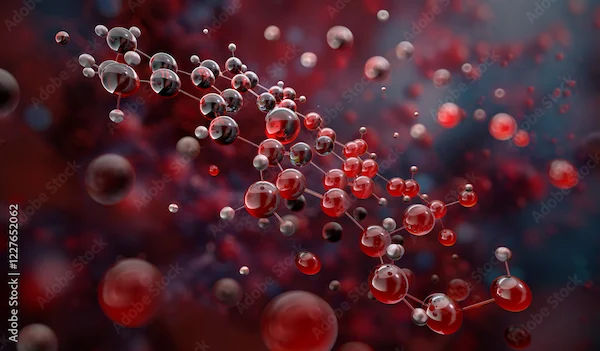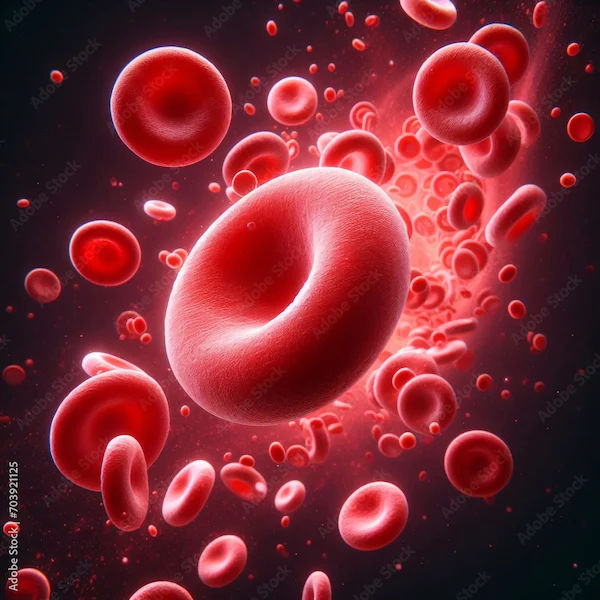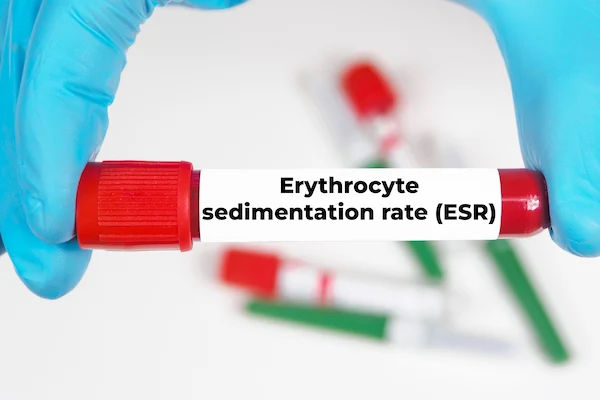Epididymitis: Symptoms, Causes And Treatment Options
Learn about epididymitis, including its symptoms, causes, risk factors, and treatment options. Discover how this condition affects men and when to seek medical care for proper diagnosis and treatment.

Written by Dr.Sonia Bhatt
Last updated on 3rd Jul, 2025

Introduction
Epididymitis is a condition where the epididymis—the small, coiled tube behind each testicle that helps store and transport sperm—becomes inflamed. This inflammation can lead to pain, swelling, and discomfort, often in one of the testicles. While it’s a fairly common issue, many men aren’t familiar with what causes it, how to manage it, or when to get medical help.
If you’ve been dealing with scrotal pain or tenderness, you’re probably wondering what’s going on and what you can do about it. In this article, we’ll walk you through everything you need to know about epididymitis—from the symptoms and causes to how it’s diagnosed and treated.
What is Epididymitis?
The epididymis is a long, coiled tube located at the back of each testicle. It plays a vital role in the male reproductive system by storing and transporting sperm from the testicles to the vas deferens, the tube that carries sperm to the urethra during ejaculation. When the epididymis becomes inflamed, it leads to a condition known as epididymitis. This inflammation can occur due to infection, injury, or other underlying health conditions.
Epididymitis can be acute (occurring suddenly and severely) or chronic (developing over a longer period and often recurring). Both forms of epididymitis can be painful and disrupt a person’s quality of life, but the good news is that treatment is available and effective in most cases.
Common Symptoms of Epididymitis
The symptoms of epididymitis can vary depending on the severity of the condition and whether it is acute or chronic. Common symptoms include:
Testicular Pain: The most noticeable symptom of epididymitis is pain or tenderness in one or both testicles. This pain may start gradually and worsen over time, or it may come on suddenly.
Swelling: The affected testicle or scrotum may become swollen, making it feel heavier than usual. Swelling may be accompanied by redness or warmth in the area.
Painful Urination: Men with epididymitis may experience discomfort or pain while urinating. This symptom can be similar to a urinary tract infection (UTI).
Frequent Urination: There may be an increased urge to urinate or a sense of urgency.
Painful Ejaculation: Men may experience pain or discomfort during or after sexual intercourse or ejaculation.
Fever and Chills: In some cases, the inflammation can lead to systemic symptoms like fever, chills, or general malaise (feeling unwell).
Discharge from the Penis: A thick, white or cloudy discharge from the penis may be present, particularly if the infection is caused by a sexually transmitted infection (STI).
Nausea or Vomiting: If the infection spreads or becomes more severe, it can lead to nausea or vomiting.
It is important to note that while epididymitis typically affects only one testicle, it can occasionally involve both testicles. Additionally, symptoms may worsen over a few days, and without treatment, the pain can become more intense.
Get Your Epididymitis Symptoms Checked
What Causes Epididymitis?
Epididymitis can occur due to a variety of causes, ranging from infections to physical injuries. Some of the most common causes include:
1. Bacterial Infections
The majority of epididymitis cases are caused by bacterial infections. These infections can be classified into two main types:
Sexually Transmitted Infections (STIs): The most common cause of epididymitis in sexually active men is an STI, particularly chlamydia and gonorrhea. These infections can spread from the urethra to the epididymis, leading to inflammation.
Urinary Tract Infections (UTIs): In men over the age of 35, epididymitis may be linked to a urinary tract infection, often caused by bacteria such as Escherichia coli (E. coli). These infections can travel up from the bladder to the prostate and epididymis, leading to inflammation.
2. Non-Infectious Causes
While infections are the most common cause of epididymitis, there are also non-infectious factors that can contribute to the condition, including:
Trauma or Injury: Physical injury to the testicles, such as during sports or accidents, can cause inflammation of the epididymis.
Urinary Retention: Conditions that cause difficulty urinating, such as an enlarged prostate or bladder outlet obstruction, may increase the risk of developing epididymitis.
Medication: In some rare cases, certain medications, including those used to treat tuberculosis, can cause epididymitis as a side effect.
Chemical Irritation: Irritation from substances such as catheters, spermicide, or even urine can lead to inflammation of the epididymis.
3. Chronic Epididymitis
Chronic epididymitis is typically caused by persistent low-grade infections or unresolved inflammation that does not respond well to initial treatments. In some cases, the exact cause of chronic epididymitis is difficult to determine.
How is Epididymitis Diagnosed?
A healthcare provider will diagnose epididymitis through a combination of physical examination, medical history, and diagnostic tests.
Physical Exam: During a physical exam, your doctor will examine your scrotum and testicles for swelling, redness, or tenderness. They may gently palpate (feel) the epididymis to assess the level of pain or swelling.
Urinalysis: A urine sample will likely be taken to check for signs of infection, such as white blood cells or bacteria.
Blood Tests: Blood tests may be ordered to detect infection or inflammation in the body.
STI Testing: If an STI is suspected as the cause of epididymitis, your doctor may test for sexually transmitted infections such as chlamydia and gonorrhea.
Ultrasound: In some cases, an ultrasound of the scrotum may be performed to rule out other conditions, such as testicular torsion (a twisting of the testicle that cuts off blood flow) or a spermatocele (a cyst in the epididymis).
Prostate Examination: If a urinary tract infection is suspected as the cause, a digital rectal exam (DRE) may be done to examine the prostate for signs of inflammation.
Treatment Options for Epididymitis
The treatment for epididymitis depends on the underlying cause of the condition. Fortunately, most cases of epididymitis can be successfully treated with medications and lifestyle changes. Here are the primary treatment options:
1. Antibiotics:
Bacterial Infections: If epididymitis is caused by a bacterial infection, antibiotics are prescribed to eliminate the infection. It's crucial to complete the full course of antibiotics, even if symptoms improve before finishing the medication.
Sexually Transmitted Infections (STIs): If the infection is due to an STI like gonorrhea or chlamydia, both the patient and their sexual partners should be treated to prevent reinfection.
2. Pain Relief:
Over-the-Counter Pain Relievers: Medications like ibuprofen or acetaminophen can help alleviate pain and reduce inflammation.
Scrotal Support: Wearing an athletic supporter or snug underwear can help support the scrotum and reduce discomfort.
3. Supportive Care:
Rest: Resting and avoiding strenuous activities can help reduce symptoms and promote healing.
Ice Packs: Applying ice packs to the scrotum can help reduce swelling and provide pain relief.
Elevation: Keeping the scrotum elevated can help reduce swelling and discomfort.
4. Follow-Up Care:
Medical Follow-Up: It's important to follow up with a healthcare provider to ensure the infection has cleared and symptoms have improved.
Ultrasound: In some cases, an ultrasound may be performed to rule out other conditions like testicular torsion.
5. Surgery:
Abscess Drainage: If an abscess forms, surgical drainage may be necessary.
Epididymectomy: In severe or recurrent cases, surgical removal of part or all of the epididymis (epididymectomy) may be considered.
6. Lifestyle and Preventive Measures
Safe Sexual Practices: Practicing safe sex and using condoms can help prevent STIs that can lead to epididymitis.
Hygiene: Maintaining good hygiene and avoiding activities that can introduce bacteria into the urinary tract can help prevent infections.
When to Seek Medical Attention
If you notice any of the symptoms of epididymitis, it’s important to seek medical care promptly. Early treatment is key to avoiding complications, such as chronic pain or infertility. Seek medical attention immediately if:
The pain is severe or doesn't improve with over-the-counter pain relievers.
You have high fever, chills, or nausea.
You notice blood or pus in your urine or semen.
There’s no improvement after starting antibiotics.
Conclusion
Epididymitis can be a painful and unsettling condition, but with the right knowledge and timely care, it is manageable. Early recognition of symptoms like testicular pain, swelling, and fever is key to seeking prompt treatment and preventing the condition from worsening. Since epididymitis is often caused by infections—such as those from bacteria or sexually transmitted diseases—treatment usually involves antibiotics, pain relief, and supportive measures like rest and elevating the scrotum. Tackling the underlying cause is essential to ensure effective healing and reduce the chance of recurrence. By staying aware of the symptoms and reaching out to a healthcare provider when necessary, you can manage the condition and avoid potential complications, helping you recover and return to your normal activities with confidence.
Consult Top Urologists
Get Your Epididymitis Symptoms Checked
Dr P K Bagchi
Urologist
10 Years • MBBS, MS (Gen. Surgery) M. Ch. (Urology)
Guwahati
Apollo Clinic Guwahati, Assam, Guwahati

Dr. Pavan Kumar S K
Urologist
11 Years • MBBS, MS , Mch( Urology) DNB (Urology)
Bengaluru
Apollo Clinic, JP nagar, Bengaluru

Dr. Sudhakar G V
Urologist
25 Years • MBBS, MS(Gen.Surgery), DNB Urology
Bengaluru
Apollo Clinic, JP nagar, Bengaluru

Dr. Pradeep Champawat
Urologist
10 Years • MBBS, MS, DNB Urology
Delhi
Apollo Hospitals Indraprastha, Delhi
(150+ Patients)

Dr. Sandeep Maheswara Reddy Kallam
Urologist
6 Years • MBBS, MS (General Surgery), M Ch (Genito-Urinary Surgery), Post Doctoral Fellowship in Uro-Surgical Oncology
Visakhapatnam
Dr. SANDEEP MAHESWARA REDDY K _- best Urologist in visakhapatnam, Visakhapatnam
(250+ Patients)
Consult Top Urologists
Dr P K Bagchi
Urologist
10 Years • MBBS, MS (Gen. Surgery) M. Ch. (Urology)
Guwahati
Apollo Clinic Guwahati, Assam, Guwahati

Dr. Pavan Kumar S K
Urologist
11 Years • MBBS, MS , Mch( Urology) DNB (Urology)
Bengaluru
Apollo Clinic, JP nagar, Bengaluru

Dr. Sudhakar G V
Urologist
25 Years • MBBS, MS(Gen.Surgery), DNB Urology
Bengaluru
Apollo Clinic, JP nagar, Bengaluru

Dr. Pradeep Champawat
Urologist
10 Years • MBBS, MS, DNB Urology
Delhi
Apollo Hospitals Indraprastha, Delhi
(150+ Patients)

Dr. Sandeep Maheswara Reddy Kallam
Urologist
6 Years • MBBS, MS (General Surgery), M Ch (Genito-Urinary Surgery), Post Doctoral Fellowship in Uro-Surgical Oncology
Visakhapatnam
Dr. SANDEEP MAHESWARA REDDY K _- best Urologist in visakhapatnam, Visakhapatnam
(250+ Patients)




